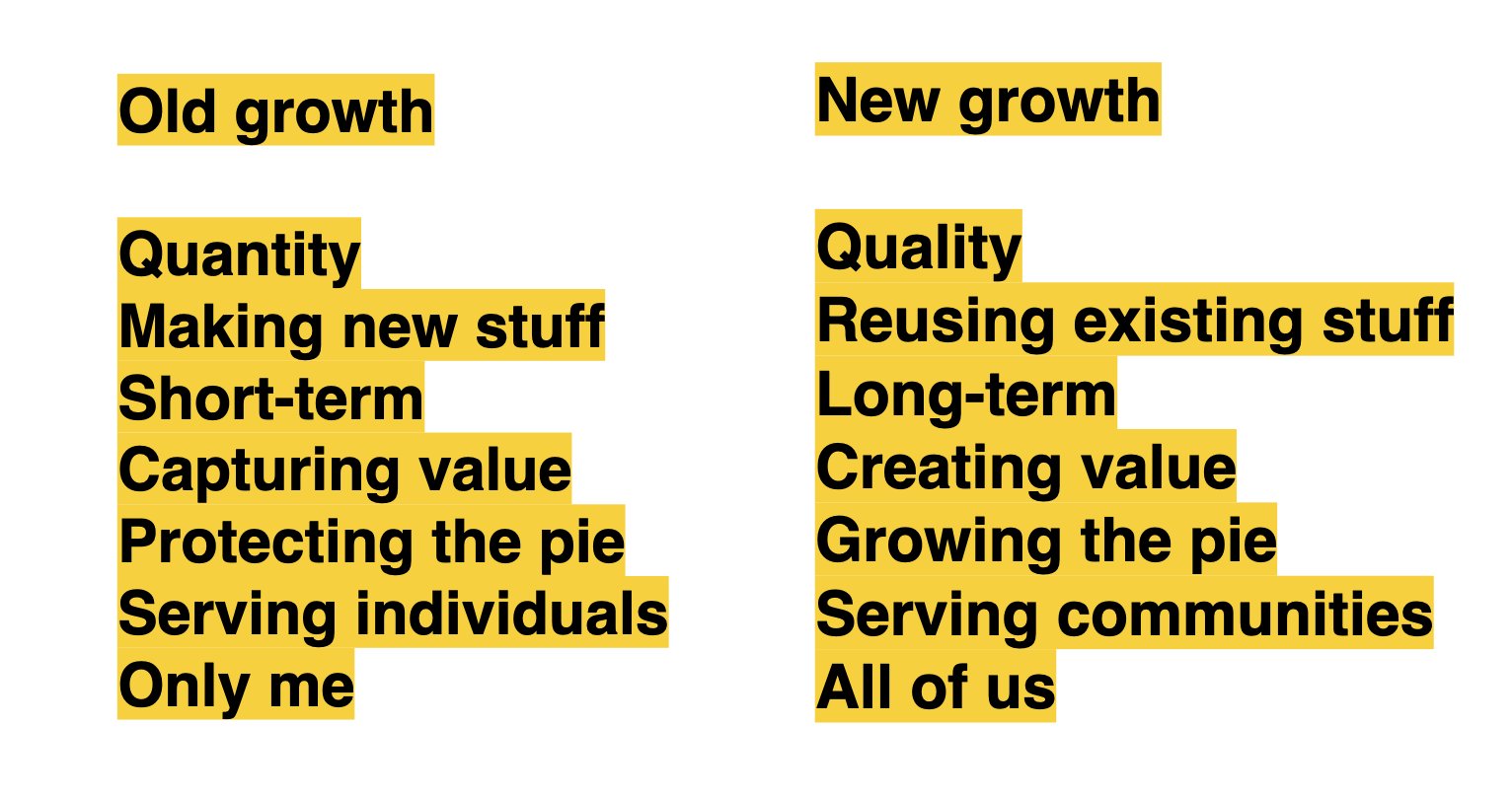This past week I’ve kept thinking back to a slide I made for a talk back in 2017 to illustrate the shift from “old growth” to “new growth” that our growing challenges were calling for.

As we exit 2020, it strikes me that this has actually started to become true. The column on the left represents where we were entering 2020. The column on the right represents where we’re moving as we leave it.
To be clear, in no way does this mean hard times are behind us or our challenges are on the verge of being solved. We can all look around and see this is not a thing to be celebrated and that there are almost certainly harder times ahead. But this year we could feel a shift. The winds changed.


